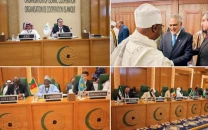Bangladesh bans 'Banglish' to protect local tongue
Bangladesh court says distortion of Bengali language tantamount to 'rape'.

Bangladesh bans 'Banglish' to protect local tongue
The High Court issued the order on Thursday in an effort to protect Bengali and its 1,000-year history, a state prosecutor said, adding that the court felt that the move was necessary “to uphold the sanctity of our mother tongue”.
The history of Bengali, which originated some 1,000 years ago and is spoken by at least 250 million people on the subcontinent, is wrapped up with the creation of Bangladesh as a country in 1972.
The country was previously part of British India and then part of Pakistan. Its independence movement was fuelled partly by the attempt by Pakistani administrators to impose Urdu as the state language.
The head of the Bangla Academy, a state-run institution that publishes books and conducts research on Bengali, said the verdict was “long overdue”.
“These FM radios and televisions were creating a strange language and almost destroyed the dynamics of our beautiful mother tongue,” Shamsuzzaman Khan told AFP.
“It is a timely order. It will save our language from destruction. We have already seen how the Filipino language lost its glory due to the imposition of American English,” he said.
The court order comes just days before the country celebrates the 60-year anniversary of the Language Movement, a protest in which half a dozen students were shot dead as they protested Pakistan's move to impose Urdu.
Dozens of private television stations and radio stations that feature music and talk-shows directed at teenagers and people in their twenties have sprouted in Bangladesh over the last five or six years.
Use of “Banglish” in which Bengali and English words are mixed seamlessly together is widespread, as is “Hinglish” in India – a combination of Hindi and English.
“The court has ordered them not to use words which are foreign to our language,” deputy attorney general Altaf Hossain told AFP.
“It asked them not to broadcast or anchor programmes using distorted Bengali language or pronounce Bengali words in a distorted form,” he said.
The court said this distortion of the language was tantamount to “rape”, Hossain said, adding it had also ordered a committee to be set up to oversee how the language should be used by broadcasters.
The court order followed a newspaper commentary piece titled “Language pollution is as deadly as river pollution” by English language professor and Bengali fiction writer Syed Manjurul Islam on Thursday.
Professor Islam told AFP that he was concerned about the role the FM radios and television stations played in creating a language that was completely foreign to Bengali.
“I am a teacher and I can see everyday how these youths were distorting the language. Because of these stations, they are now talking in a language that's not Bengali. They can't even talk or write properly in Bengali,” he said.
“I am greatly concerned. They are turning Bengali into a street language. It's like a developer constructing a building by uprooting the grave of his forefathers,” he said.
Sabbir Hasan, a radio jockey at private Radio Today, also welcomed the verdict, but said the media was not the only one to blame.
“I understand the intention is to uphold the sanctity of our language, for which our students gave their lives,” he said in a reference to the pre-independence protesters.
“But the reality is not only the media is responsible. Our young generation likes to talk this way, mixing English words in Bangla sentences. The tendency is more rampant in upper class people and private university students.”
“Upper class people think it gives them status,” he said.


















COMMENTS
Comments are moderated and generally will be posted if they are on-topic and not abusive.
For more information, please see our Comments FAQ